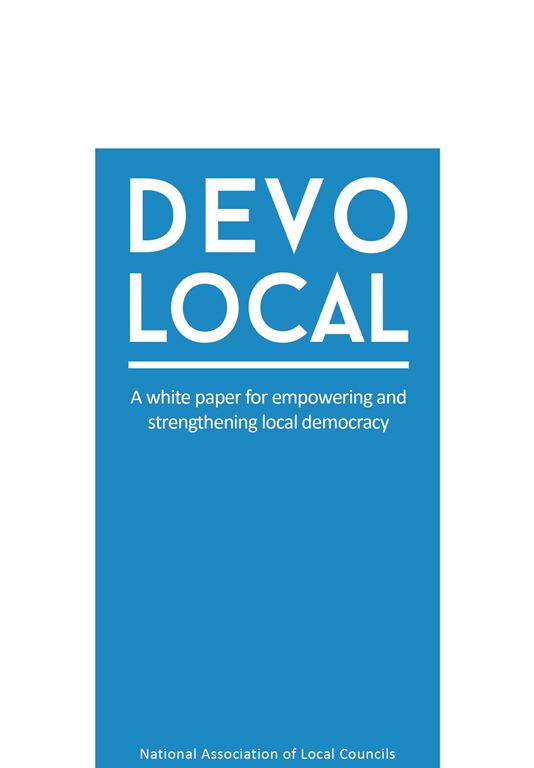Explore our publications by clicking on the relevant titles.
Local Councils Explained
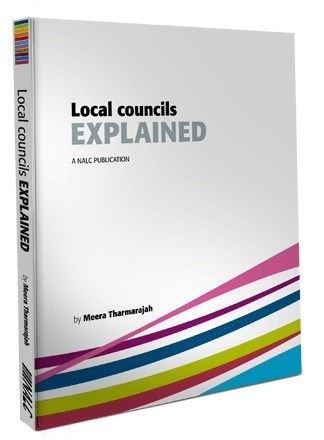
Local Councils Explained tells you everything you need to know about parish councils in England and community councils in Wales. It contains information and commentary about the role of councils, councillors and council staff, plus the legal and internal framework in which they operate. The book includes a few sample documents and standing orders, which are the internal rules for a council. This book is easy to read and recommended for anyone with interest in councils. It will help those who work in or with councils. Local Councils Explained was written in 2013; there have been some new legislation since then. The standing orders contained in Local Councils Explained were updated in April 2018. NALC and One Voice Wales members may access NALC's most recent standing orders by logging in to the website.
The Good Councillor's guide

This revised edition of The Good Councillor's guide is a much-needed resource. It is essential guidance for new councillors and those thinking about becoming a local councillor. New councillors have much information to take in when they join a council, and the guide can help them understand this.
Read The Good Councillor's guide
The Good Councillor's guide to neighbourhood planning
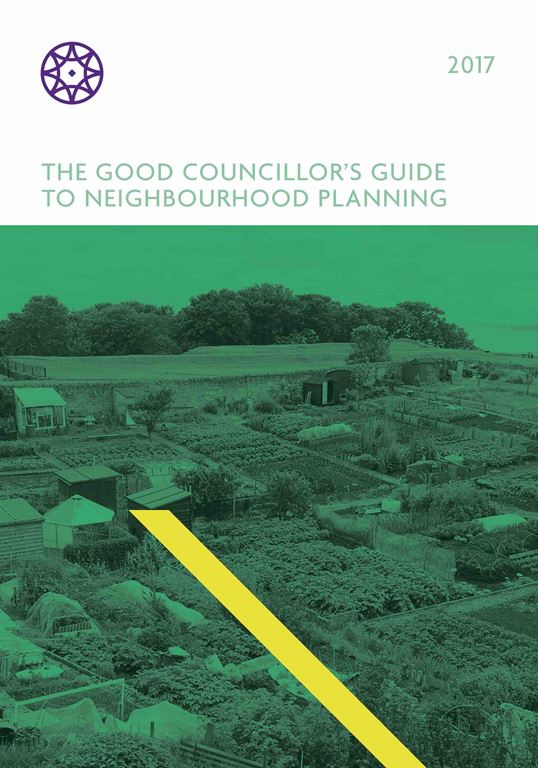
The Good Councillor's guide to neighbourhood planning is explicitly designed to help local councillors support their communities and council in deciding whether or not to produce a neighbourhood plan for their area and if they choose to go ahead, to guide them through the process of creating the plan and thinking about how it will be delivered.
To read this document for FREE, please log in and see Development Tools.
The Good Councillor's guide to finance and transparency
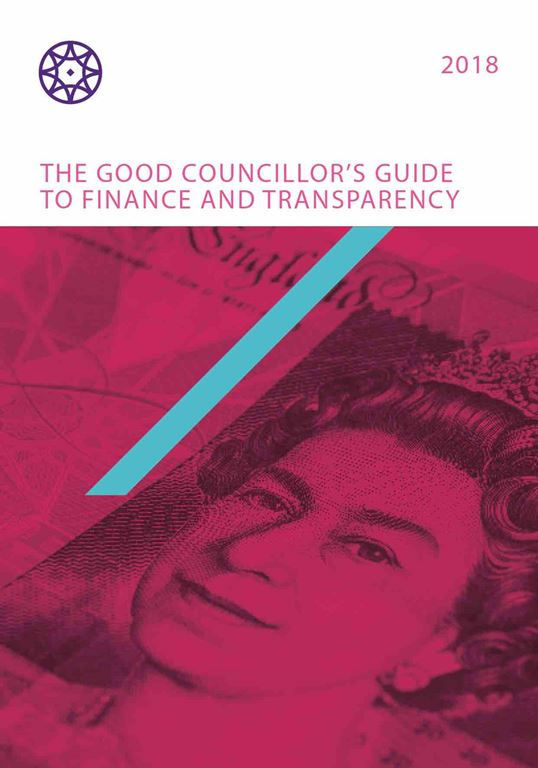
The Good Councillor's guide to finance and transparency is a user-friendly summary for councillors of their finance and transparency responsibilities.
To read this document for FREE, please log in and see Development Tools.
The Good Councillor's guide to transport planning

This guide is aimed at local (parish and town) councillors interested in transport planning issues in their areas and those who are curious to know more.
To read this document for FREE, please log in and see Development Tools.
The Good Councillor's guide to community business
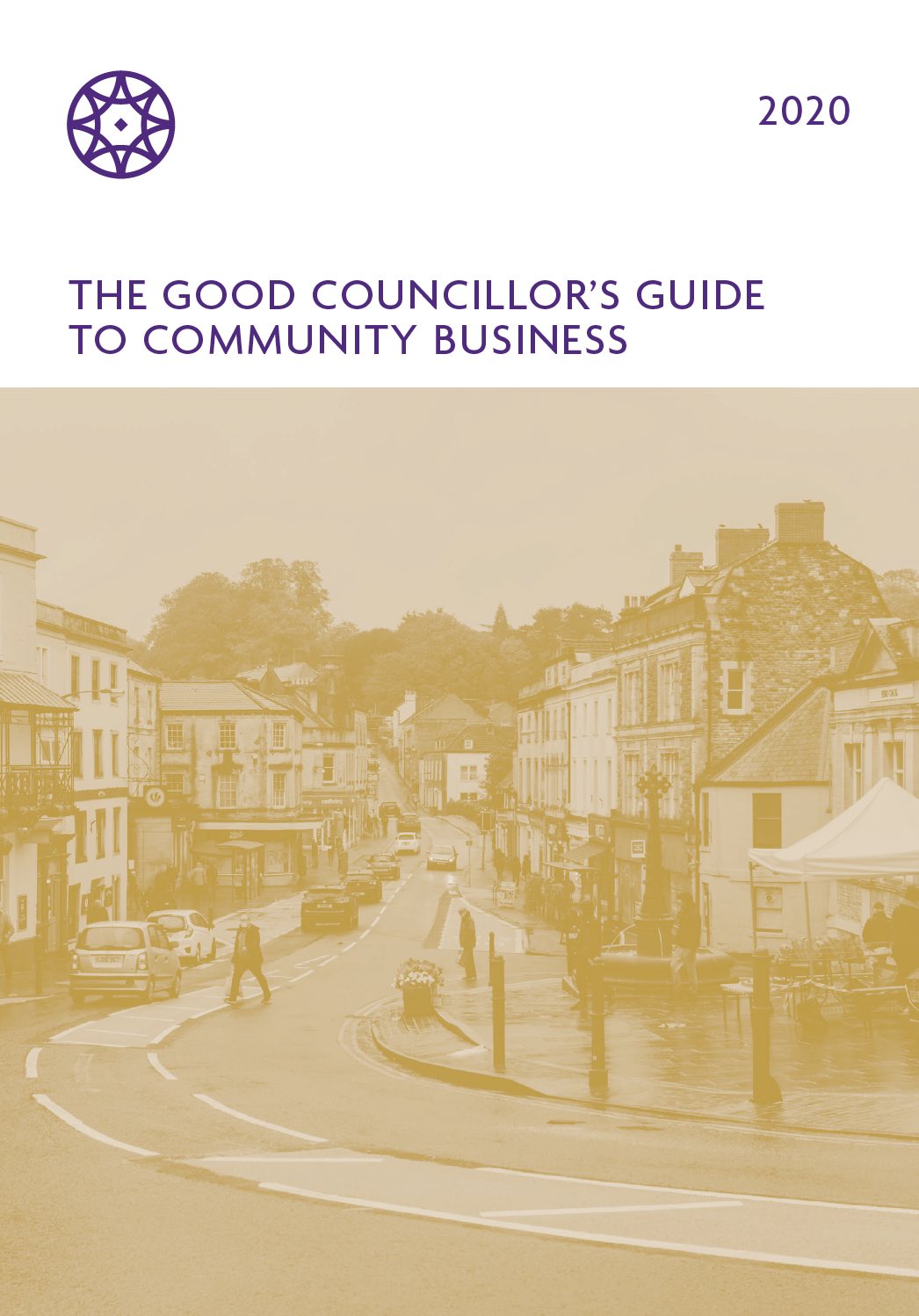
This guide aims to help local (parish and town) councils and their councillors better understand what community businesses do to consider whether they would be beneficial for their area. The publication also features seven local council case studies, showcasing real engagement with this form of business.
To read this document for FREE, please log in and see Development Tools.
The Good Councillor's guide to cyber security
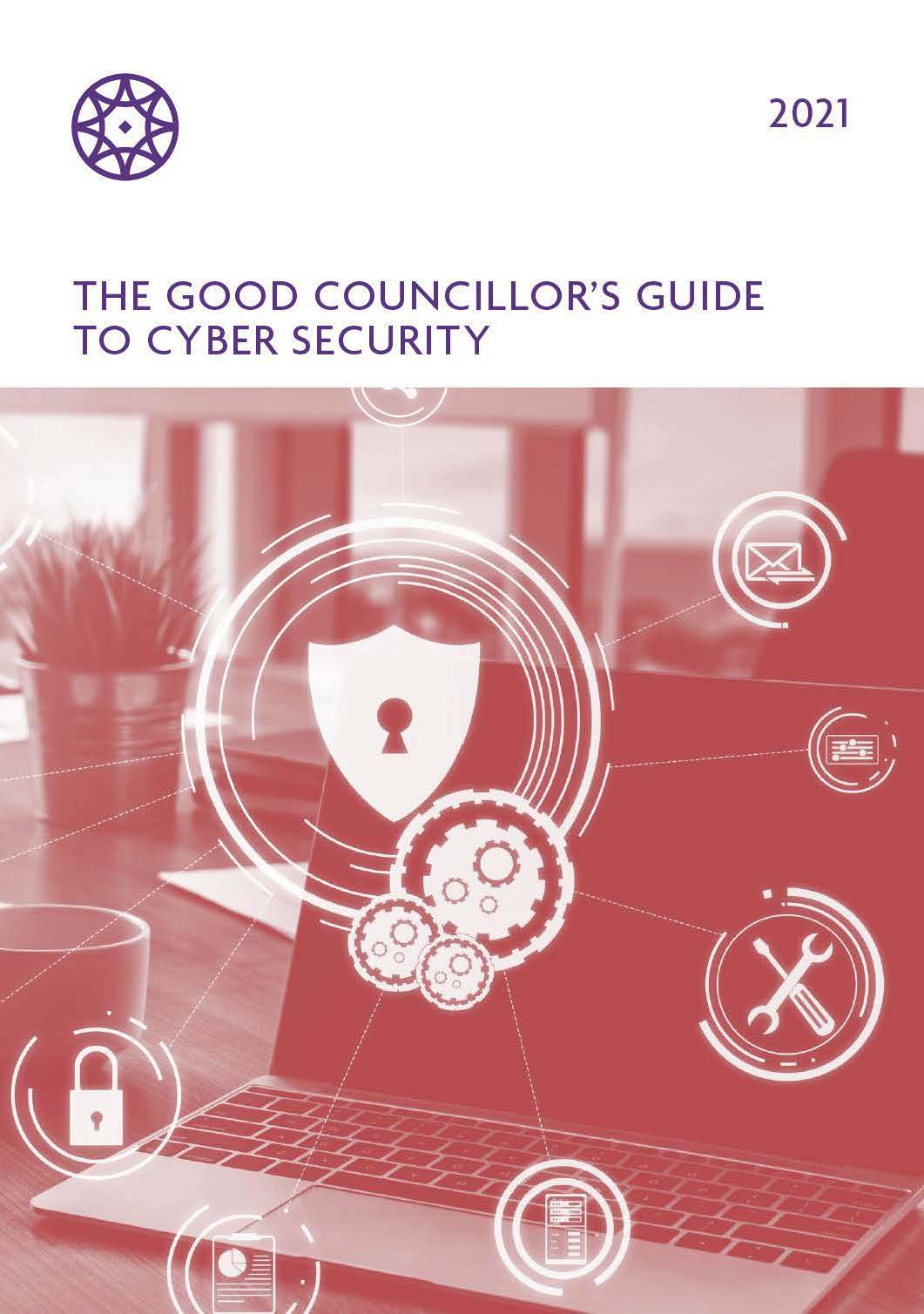
This guide aims to help local (parish and town) councils and their councillors better understand the importance of cyber security and provide practical advice on how they can minimise risks to the council. The publication features information on how to understand the most common risks, such as phishing, viruses, and loss of data and how some simple steps can help ensure that the council's information and equipment can be protected.
To read this document for FREE, please log in and see Development Tools.
The Good Councillor's guide to employment
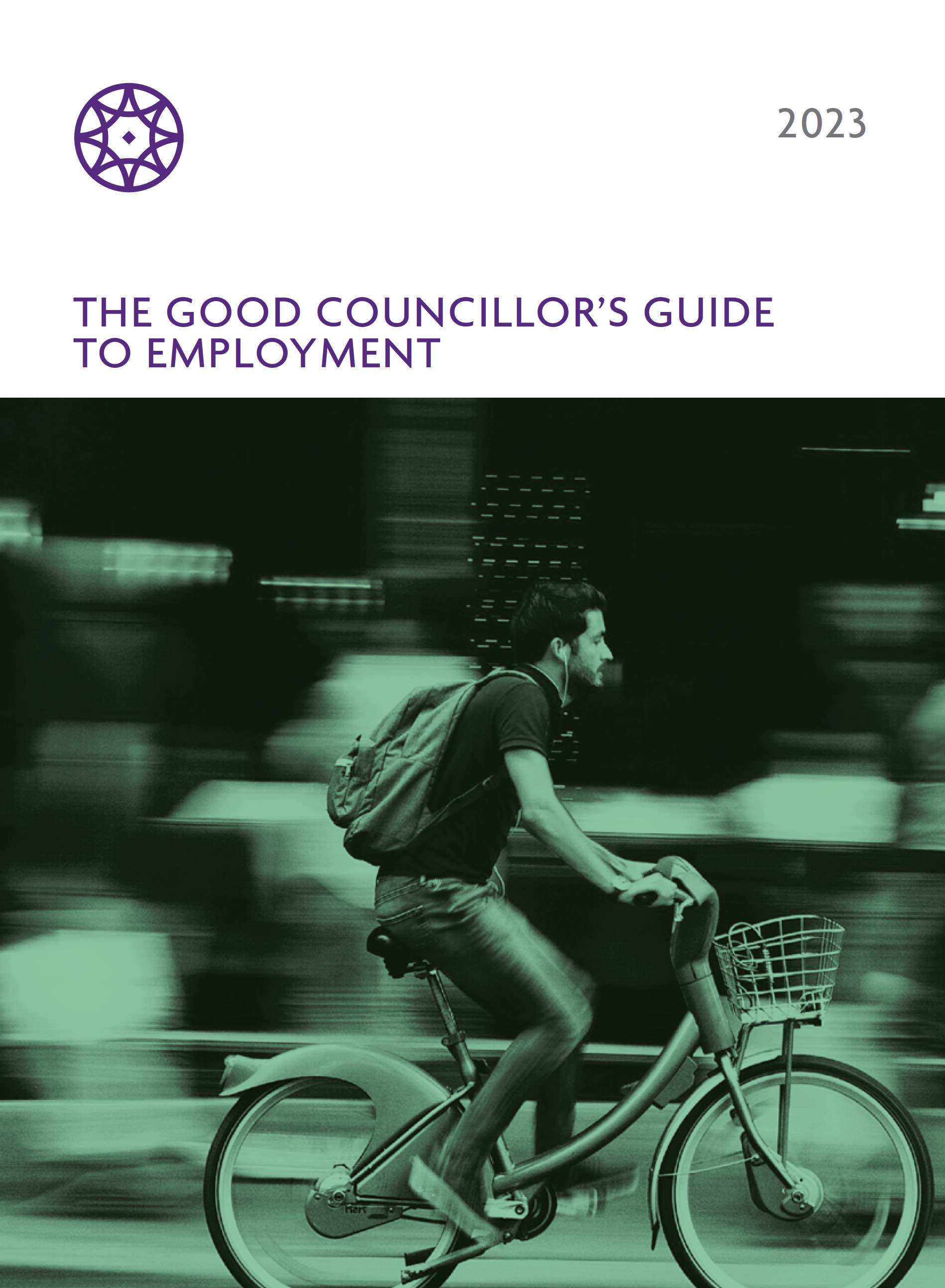
The Good Councillor's guide to employment gives practical guidance on recruiting and managing employees effectively and in compliance with employment legislation up to the publication date.
To read Being a good employer for FREE, please log in and see Development Tools.
Briefing on council email addresses
This briefing helps local councils understand more about gov.uk domain names. This new briefing highlights the main advantages of this approach for councillors, clerks, and the public. The briefing also includes good practice in managing passwords and email security.
Website accessibility and publishing guidelines
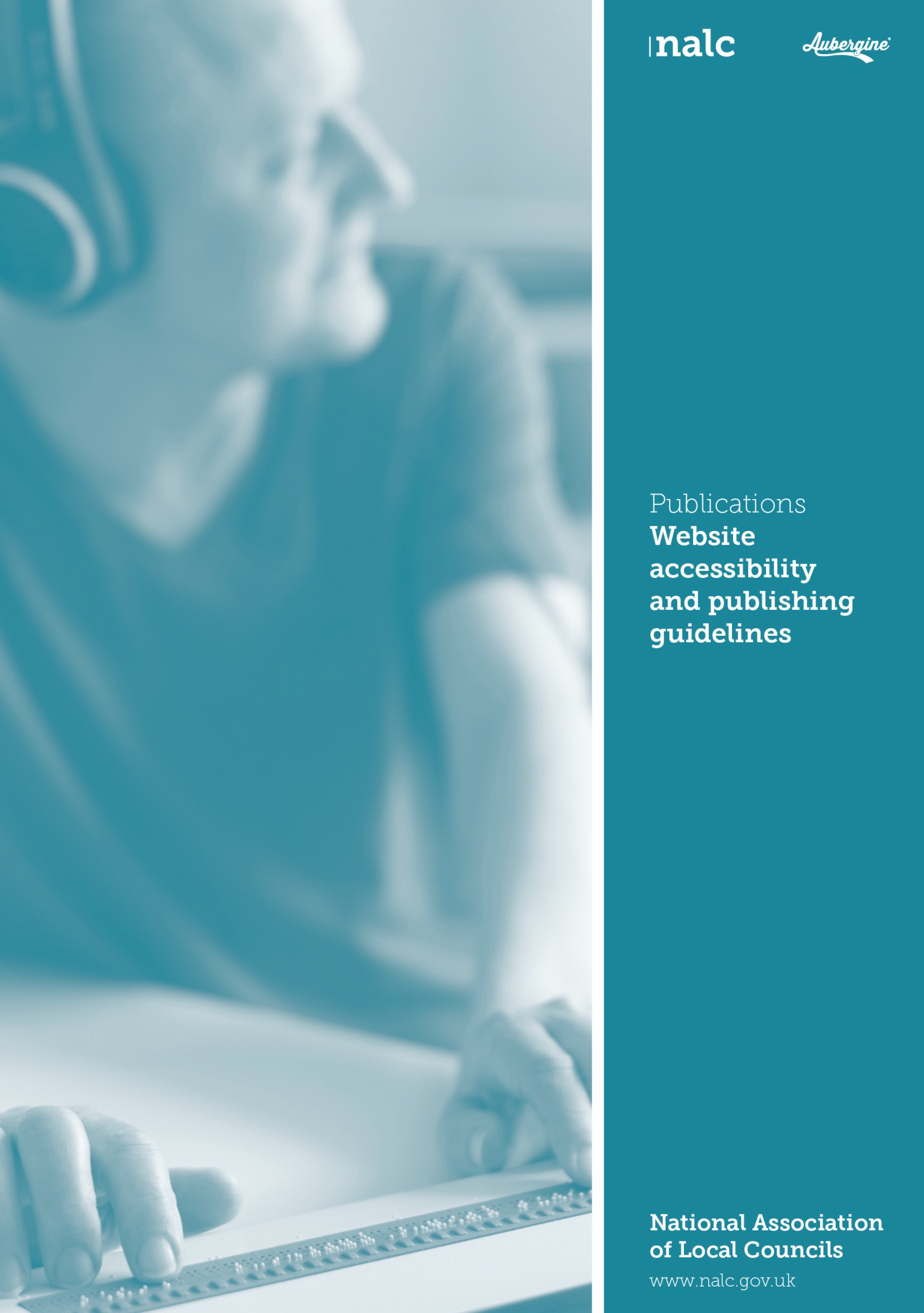 The guide aims to help local (parish and town) councils ensure their websites meet the needs of all users — especially those with disabilities or impairments that use assistive technology. It explains what website accessibility is, how it affects local councils, the requirements, and compliance. It details what a council must publish under the Transparency Code 2015, the costs of running a website, where to get help, what ongoing checks are needed, and discusses the future of website accessibility. The guide also contains a step-by-step guide and a range of resources.
The guide aims to help local (parish and town) councils ensure their websites meet the needs of all users — especially those with disabilities or impairments that use assistive technology. It explains what website accessibility is, how it affects local councils, the requirements, and compliance. It details what a council must publish under the Transparency Code 2015, the costs of running a website, where to get help, what ongoing checks are needed, and discusses the future of website accessibility. The guide also contains a step-by-step guide and a range of resources.
Read website accessibility and publishing guidelines guide
Points of Light
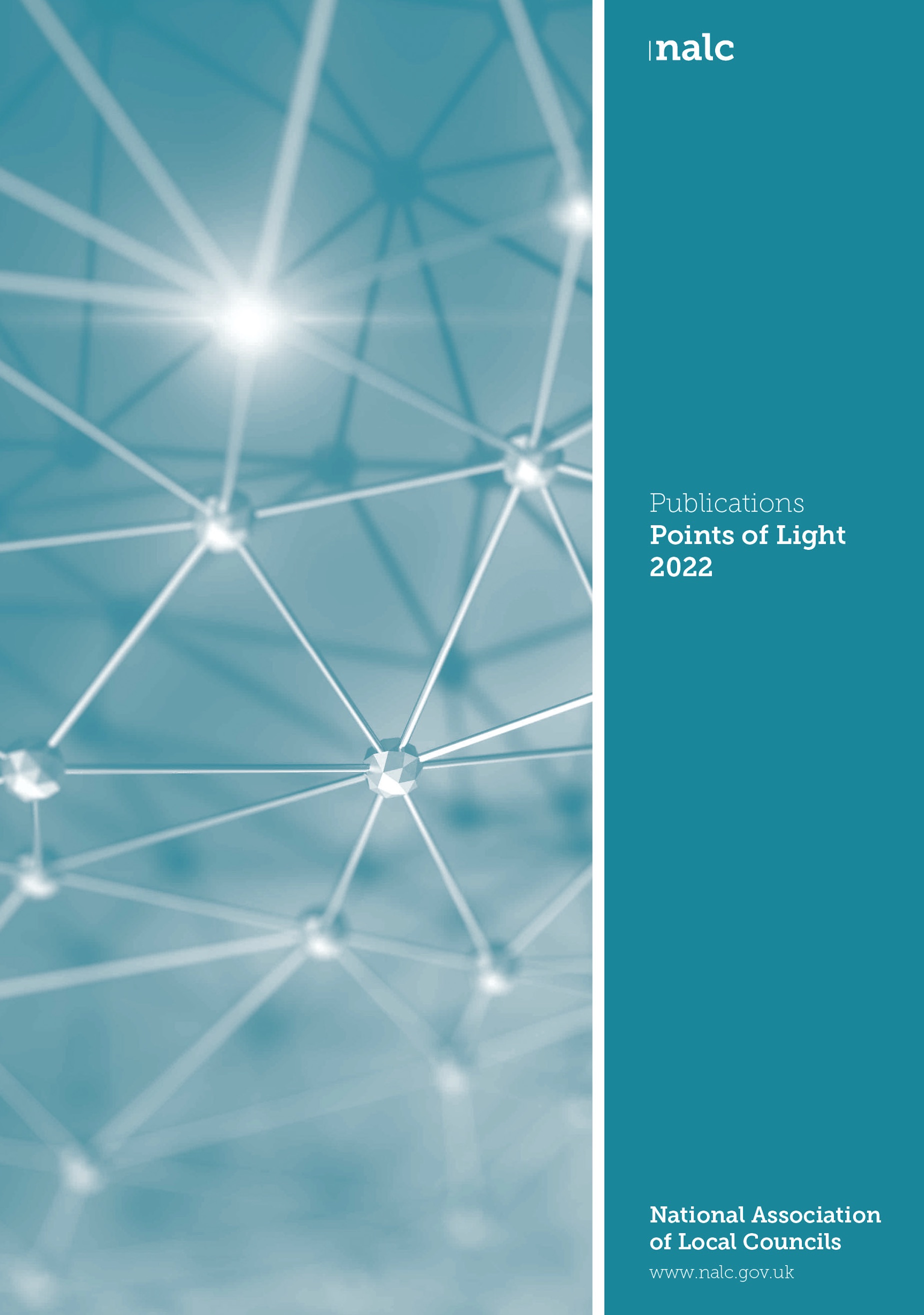
Points of Light is a collection of case studies highlighting local (parish and town) councils' work to support their communities. The latest edition features several case studies that include the electorate, precept and expenditure data, and summaries with further information.
Annual Report
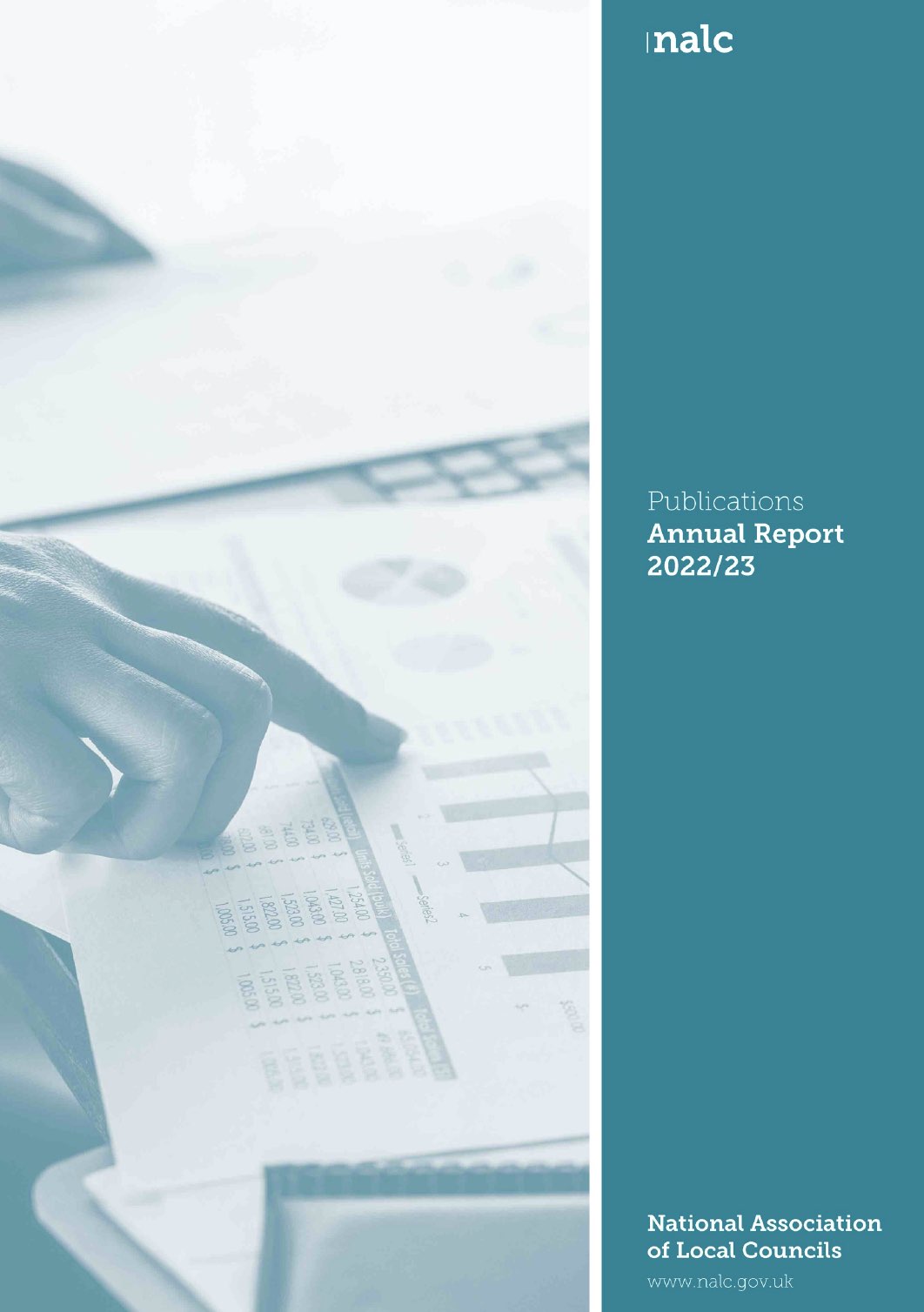
The Annual Report is a comprehensive report on NALC's activities throughout the preceding year, which includes accounts, auditors' report and finance reports.
Digital Mapping Toolkit
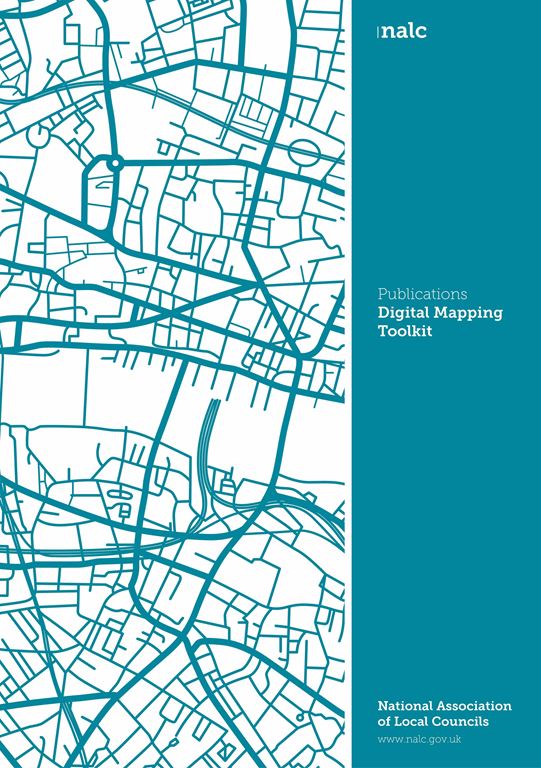 Digital mapping can be an easy, time-efficient and cost-effective way for local councils to map their assets and visualise their area. Digital mapping can be effective for; fulfilling essential legal requirements, maintaining key records, planning, and communicating effectively.
Digital mapping can be an easy, time-efficient and cost-effective way for local councils to map their assets and visualise their area. Digital mapping can be effective for; fulfilling essential legal requirements, maintaining key records, planning, and communicating effectively.
With this in mind, NALC has partnered with Parish Online and Pear Technology to form a toolkit to give you information about digital mapping and what it can do to help your local council.
Digital mapping systems for local council management
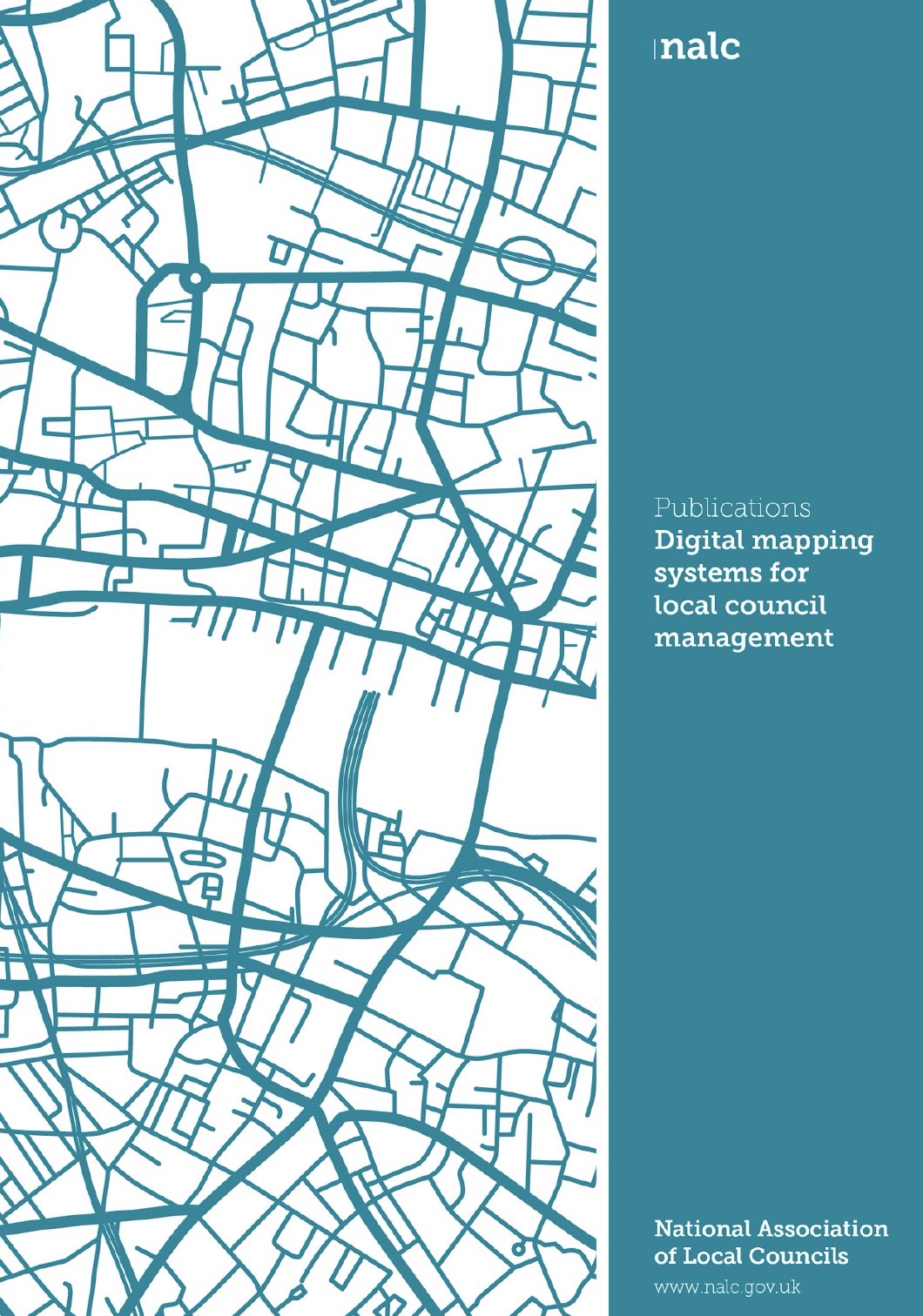 The management of local councils can often involve various geographic tasks, and this publication provides a checklist of the many things every local council should be able to do using the vast array of digital mapping data that is freely available. Local councils are encouraged to use the checklist to identify gaps in their current digital map usage and to see which additional layers of information they could use, which will help with longer-term planning. The checklist gives examples of how local councils should be able to use the data effectively and advice on how to achieve it.
The management of local councils can often involve various geographic tasks, and this publication provides a checklist of the many things every local council should be able to do using the vast array of digital mapping data that is freely available. Local councils are encouraged to use the checklist to identify gaps in their current digital map usage and to see which additional layers of information they could use, which will help with longer-term planning. The checklist gives examples of how local councils should be able to use the data effectively and advice on how to achieve it.
Read the digital mapping systems for local council management
Practitioners’ Guide
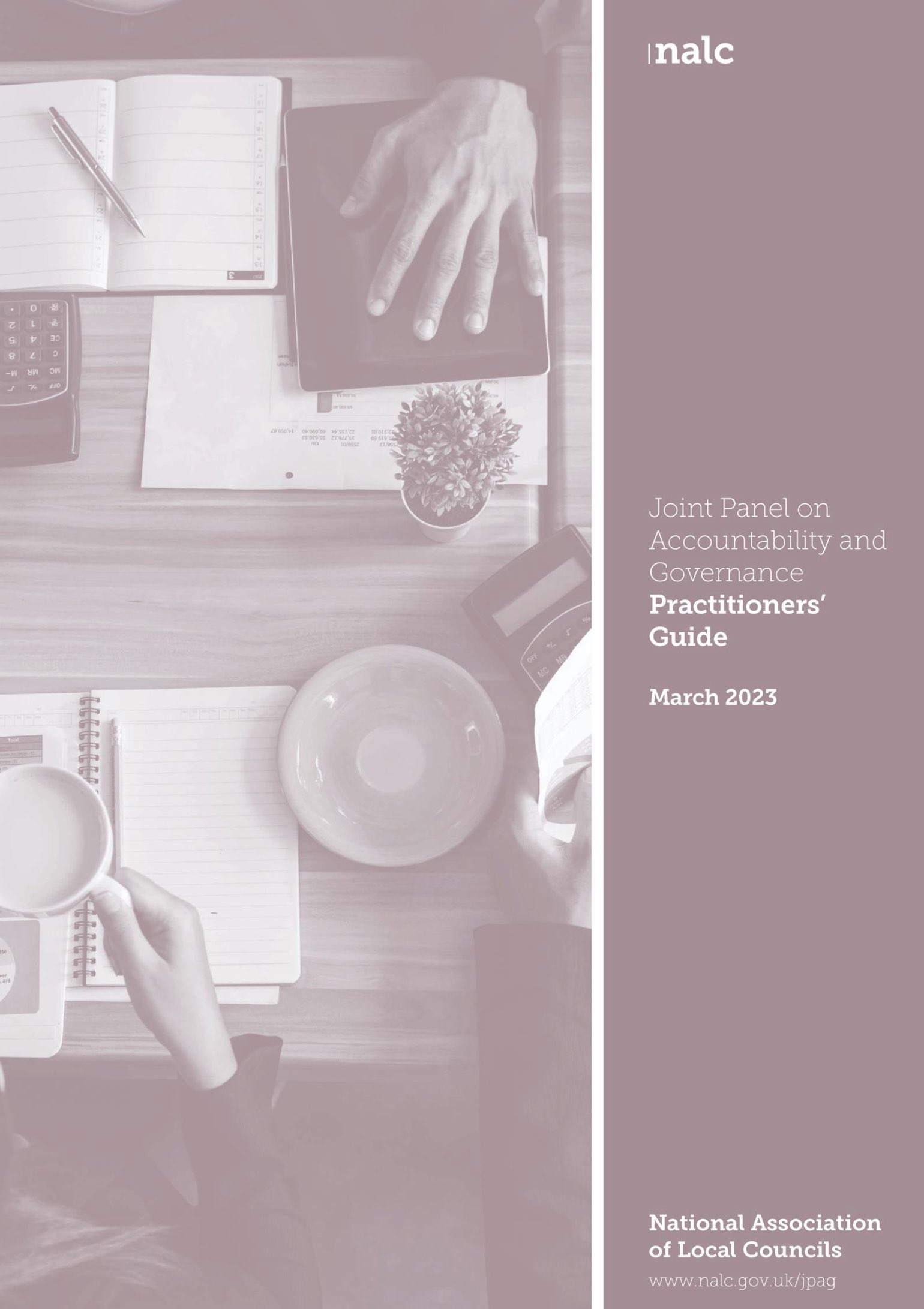
The Practitioners' Guide is issued by the Joint Panel on Accountability and Governance (JPAG) to support the preparation by smaller authorities in England of statutory annual accounting and governance statements found in the Annual Governance and Accountability Return (AGAR).
Read the Practitioners' Guide 2023
What is localism?
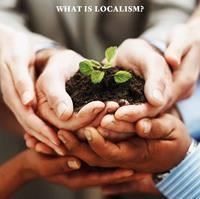
This booklet features a series of essays by parliamentarians and other key thinkers on localism.
What next for localism?

NALC and the All-Party Parliamentary Group (APPG) on Local Democracy have launched an inquiry into what is next for localism, with a specific focus on the role of local councils.
Where next for localism?

This specially commissioned report in association with the Local Government Chronicle (LGC) shows that local councils are taking on services to fill gaps as principal authorities provision is cut. The report shows that local councils take on services to fill gaps as principal authorities provision is cut. When it's done right, giving power to local people brings democracy closer to home – it's empowering. It can make for better decision-making, less disillusionment with politics and more local accountability and transparency. The report includes case studies of local council work on health and well-being, economic growth, housing and planning and devolution to the local council level.
All about local councils
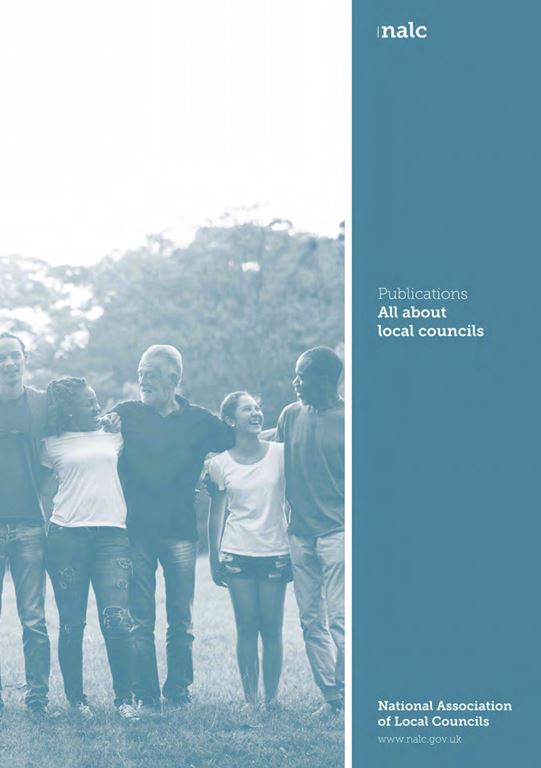
This booklet has a slightly more urban slant and, while aimed at a more urban audience, is still relevant as a resource to all local councils. There are two brand new case studies. The booklet gives simplified explanations about the role and work of local councils and their councillors, explains the electoral process and provides several case studies highlighting the work of a selection of local councils.
Localism in practice
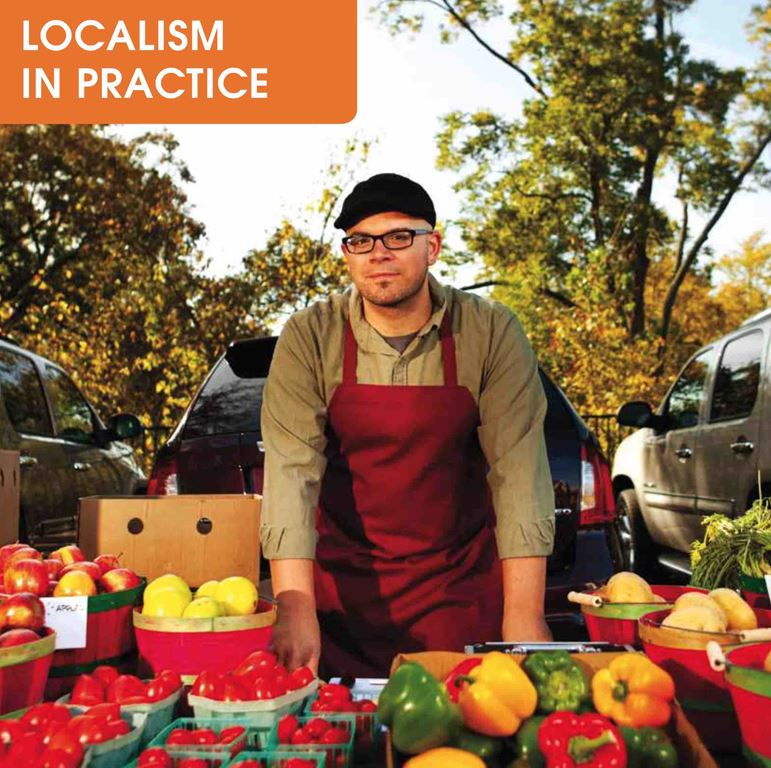
This booklet aims at showcasing some of the brilliant work undertaken by local councils to support the needs of local people.
It takes all sorts

This booklet highlights the difference you can make by representing your community on your local council. It explains the role of local councils and local councillors and explains how you can get involved. The booklet also features the thoughts of current councillors from around the country, explaining a little about why they represent their communities.
Whatever, yeah? – Local councils and youth provision

This booklet highlights just some of the innovative approaches taken by local councils to represent young people in their local area better.
Read Whatever, yeah? – Local councils and youth provision
Power to the People

Section 1 — What are local councils
In this booklet, you will learn what a local council does on behalf of local communities and people. See how they make a difference in villages, towns and cities.

Section 2 —Create your own local council
This booklet explains how you can go about creating a new local council for your local area.
Read How to create your own local council

Section 3 — Establishing your new local council
This booklet outlines the role of the temporary council and the things you will need to consider at the first meeting of the new local council.
Read Establishing your new local council
Planning explained
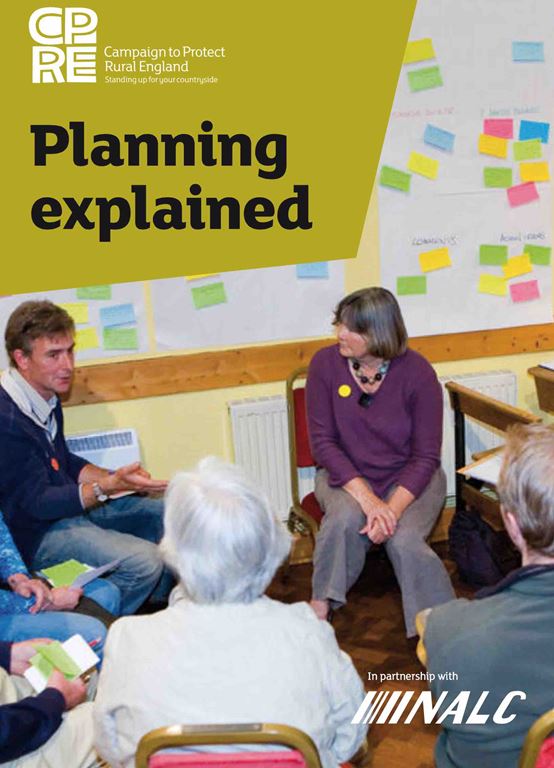
This booklet provides an introduction to neighbourhood planning, highlighting the importance of the planning system in delivering sustainable development and the importance and influence of the local community in the process. It explains how you can get involved in local plans, giving you the knowledge and tools you need to get started. The booklet also contains a step-by-step plan of action and sample local plan consultation responses to help you maximise your influence when getting involved in local plans.
How to shape where you live: a guide to neighbourhood planning
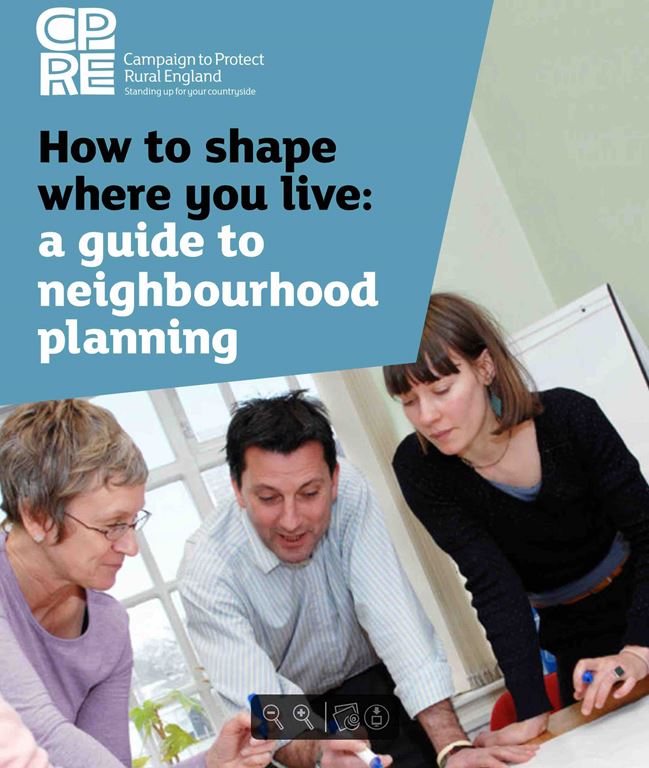
This guide briefly introduces the planning system and neighbourhood planning, emphasising their role in sustainable development. It sets out some general principles for neighbourhood plans, providing a brief description of the different stages through which a neighbourhood plan goes. In addition, the guide also offers step-by-step advice on how to prepare a neighbourhood plan, including information on sustainability appraisal.
Read How to shape where you live: a guide to neighbourhood planning
How to respond to planning applications: an eight step guide
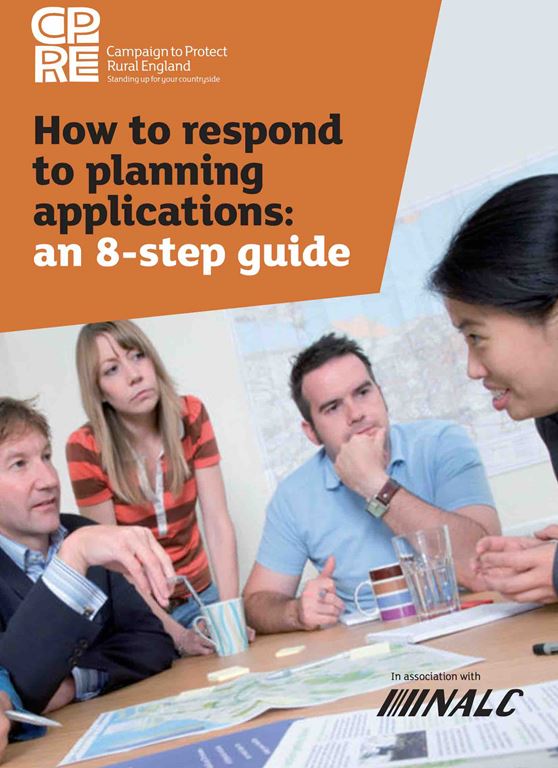
This booklet offers a brief introduction to the planning system and the planning application process. It aims to help you present your views on planning applications in your area appropriately, effectively, and to the right people. The guide offers information on how different planning applications is assessed, also providing sample letters and emails of support and objection to planning applications.
Read How to respond to planning applications: an eight-step guide
Continuous Professional Development Scheme

The National Improvement Strategy supports the growth of the Continuous Professional Development Scheme (CPDS) for local council clerks and staff. CPDS is a personal conscious commitment to maintaining professional knowledge, skills and standards in a particular role. CPDS helps develop an individual's competence and capability through their working life and enhances the work of their local council and its services to the community. Although the programme is aimed at clerks, councillors are also free to participate in the programme.
Read the Continuous Professional Development Scheme
Where Next for Neighbourhood Planning?
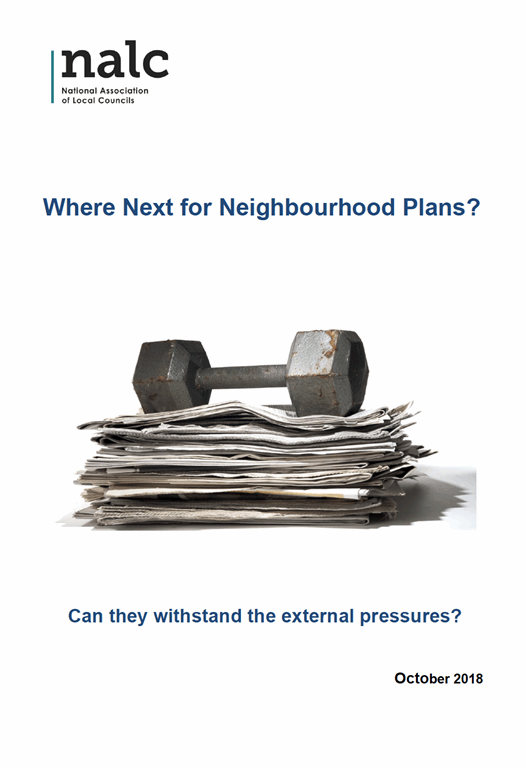 This report assesses the significance of neighbourhood planning and its contribution to the national planning policy arena. However, its main focus is to suggest a future direction for neighbourhood planning and strengthen the process. It means ways to make neighbourhood plans more sustainable, why Local Plans should have greater synergy with neighbourhood plans, and why neighbourhood plans need to remain valid in planning terms for more extended periods.
This report assesses the significance of neighbourhood planning and its contribution to the national planning policy arena. However, its main focus is to suggest a future direction for neighbourhood planning and strengthen the process. It means ways to make neighbourhood plans more sustainable, why Local Plans should have greater synergy with neighbourhood plans, and why neighbourhood plans need to remain valid in planning terms for more extended periods.
Read Where Next for Neighbourhood Planning?

